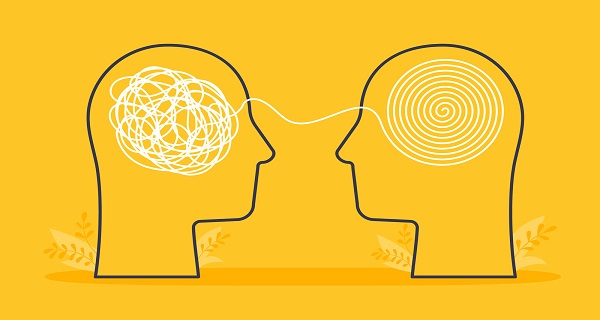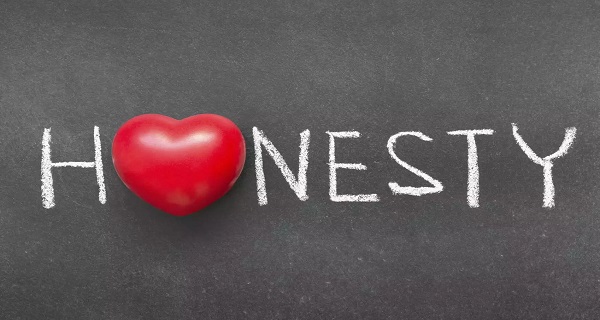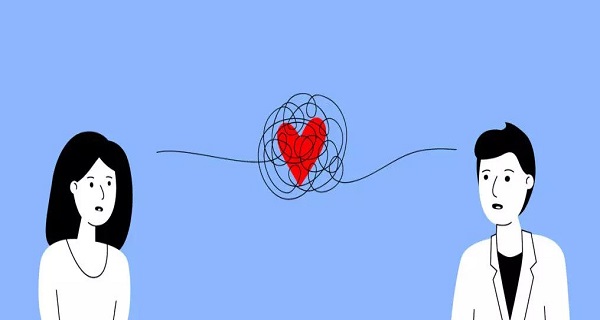The Power of Empathy: A Morality Story of Connection and Understanding
-
Table of Contents
- Introduction
- How Empathy Can Help Us Connect with Others and Build Stronger Relationships
- The Benefits of Practicing Empathy in the Workplace
- Exploring the Role of Empathy in Conflict Resolution
- The Impact of Empathy on Mental Health and Well-Being
- Teaching Children the Power of Empathy: A Guide for Parents and Educators
- Conclusion
“Unlock the power of empathy and discover a world of connection and understanding.”
Introduction
The Power of Empathy: A Morality Story of Connection and Understanding is a book that explores the power of empathy and how it can be used to create meaningful connections and understanding between people. It is a story of how empathy can be used to bridge divides, build relationships, and create a more compassionate world. Through the story of a young girl, the book explores the importance of empathy and how it can be used to create a more just and equitable society. It is a story of hope and understanding, and a reminder that we all have the power to make a difference in the world.
How Empathy Can Help Us Connect with Others and Build Stronger Relationships
Empathy is a powerful tool that can help us build stronger relationships with others. It allows us to understand and relate to the feelings and experiences of those around us. When we show empathy, we demonstrate that we care about the other person and are willing to put ourselves in their shoes.
When we show empathy, we can create a deeper connection with the other person. We can better understand their perspective and feelings, and this can help us build trust and respect. We can also use empathy to help us resolve conflicts and disagreements. By understanding the other person’s point of view, we can come to a resolution that works for both parties.
Empathy also helps us build stronger relationships by allowing us to be more compassionate and understanding. We can show kindness and support to those around us, and this can help us create a more positive and supportive environment. We can also use empathy to help us build stronger relationships with our family and friends. By understanding their feelings and experiences, we can better support them and be there for them when they need us.
Empathy is a powerful tool that can help us build stronger relationships with others. It allows us to understand and relate to the feelings and experiences of those around us. By showing empathy, we can create a deeper connection with the other person, resolve conflicts, and be more compassionate and understanding. Empathy can help us build stronger relationships with our family and friends, and it can help us create a more positive and supportive environment.
The Benefits of Practicing Empathy in the Workplace

Empathy is an incredibly powerful tool in the workplace. It can help create a more positive and productive environment, and it can also help build strong relationships between colleagues. Here are some of the benefits of practicing empathy in the workplace:
1. Improved Communication: Empathy helps us to better understand the perspectives of others, which can lead to more effective communication. When we practice empathy, we can better understand the needs and feelings of our colleagues, which can help us to communicate more effectively and build stronger relationships.
2. Increased Collaboration: Empathy can help us to better collaborate with our colleagues. When we understand the perspectives of others, we can work together more effectively and come up with better solutions.
3. Improved Problem-Solving: Empathy can help us to better understand the needs of our colleagues, which can lead to more effective problem-solving. When we understand the perspectives of others, we can come up with better solutions that are tailored to their needs.
4. Increased Productivity: Empathy can help us to better understand the needs of our colleagues, which can lead to increased productivity. When we understand the perspectives of others, we can work together more effectively and come up with better solutions.
5. Improved Morale: Empathy can help us to better understand the needs of our colleagues, which can lead to improved morale. When we understand the perspectives of others, we can work together more effectively and come up with better solutions.
Empathy is an incredibly powerful tool in the workplace. It can help create a more positive and productive environment, and it can also help build strong relationships between colleagues. By practicing empathy, we can better understand the perspectives of others, which can lead to improved communication, collaboration, problem-solving, productivity, and morale.
Exploring the Role of Empathy in Conflict Resolution
Empathy is an essential tool for conflict resolution. It is the ability to understand and share the feelings of another person. When we are able to put ourselves in someone else’s shoes, we can better understand their perspective and feelings. This understanding can help us to find common ground and work towards a resolution.
Empathy is a powerful tool for conflict resolution because it allows us to connect with the other person on an emotional level. When we are able to understand and relate to the other person’s feelings, we can better understand their needs and wants. This understanding can help us to come up with creative solutions that meet both parties’ needs.
Empathy also helps us to be more patient and understanding when dealing with conflict. When we are able to understand the other person’s feelings, we can be more patient and understanding when it comes to resolving the conflict. We can also be more open to compromise and negotiation, which can help to find a resolution that works for both parties.
Finally, empathy can help us to be more compassionate and understanding when dealing with conflict. When we are able to understand the other person’s feelings, we can be more compassionate and understanding when it comes to resolving the conflict. This can help to create a more positive atmosphere and can help to build trust between the two parties.
Empathy is an essential tool for conflict resolution. It allows us to connect with the other person on an emotional level and to better understand their needs and wants. It also helps us to be more patient and understanding when dealing with conflict, and to be more open to compromise and negotiation. Finally, it can help us to be more compassionate and understanding when dealing with conflict, which can help to create a more positive atmosphere and can help to build trust between the two parties.
The Impact of Empathy on Mental Health and Well-Being
Empathy is a powerful emotion that can have a profound impact on our mental health and well-being. It is the ability to understand and share the feelings of another person. When we are able to empathize with someone, we can better understand their perspective and feelings, and this can help us to build stronger relationships and foster a sense of connection.
Empathy can help us to better manage our own emotions and reactions. When we are able to understand and relate to the feelings of another person, we can better regulate our own emotions and reactions. This can help us to stay calm and respond in a more constructive way.
Empathy can also help us to build stronger relationships. When we are able to understand and relate to the feelings of another person, we can better connect with them. This can help us to build trust and foster a sense of closeness.
Empathy can also help us to better manage stress and anxiety. When we are able to understand and relate to the feelings of another person, we can better manage our own stress and anxiety. This can help us to stay calm and respond in a more constructive way.
Finally, empathy can help us to foster a sense of compassion and understanding. When we are able to understand and relate to the feelings of another person, we can better appreciate their perspective and feelings. This can help us to be more understanding and compassionate towards others.
Overall, empathy can have a positive impact on our mental health and well-being. It can help us to better manage our emotions, build stronger relationships, manage stress and anxiety, and foster a sense of compassion and understanding. Empathy is a powerful emotion that can have a profound impact on our mental health and well-being.
Teaching Children the Power of Empathy: A Guide for Parents and Educators
As parents and educators, we have the power to shape the future of our children. We can teach them the importance of empathy and help them develop the skills to be compassionate and understanding of others.
Empathy is the ability to understand and share the feelings of another person. It is a powerful tool that can help children build relationships, resolve conflicts, and develop a sense of self-worth. Teaching children empathy can help them become more compassionate and understanding of others, and can even help them become better problem-solvers.
So, how can we teach children the power of empathy? Here are some tips for parents and educators:
1. Model empathy. Children learn by example, so it’s important to show them how to be empathetic. Demonstrate empathy in your own interactions with others, and talk to your children about why it’s important to be understanding and compassionate.
2. Encourage children to express their feelings. Help children identify and express their emotions in a healthy way. This will help them understand their own feelings and the feelings of others.
3. Talk about empathy. Talk to your children about empathy and why it’s important. Ask them questions about how they think other people feel in different situations.
4. Read stories about empathy. Reading stories about empathy can help children understand the concept and learn how to be more compassionate.
5. Encourage children to practice empathy. Give children opportunities to practice empathy in their everyday lives. For example, you can encourage them to help a friend in need or to be kind to someone who is feeling down.
By teaching children the power of empathy, we can help them become more compassionate and understanding of others. We can also help them develop the skills to build strong relationships and become better problem-solvers. With a little guidance and support, we can help our children become more empathetic and kind-hearted individuals.
Conclusion
The Power of Empathy: A Morality Story of Connection and Understanding is a powerful reminder of the importance of empathy in our lives. It shows us how empathy can help us to better understand and connect with others, and how it can be used to create a more compassionate and just world. Empathy is a powerful tool that can help us to build bridges between people and create a more harmonious society. By understanding and practicing empathy, we can create a more peaceful and equitable world.
Related
Related Posts
-
 The Virtue of Honesty: A Morality Story of Integrity and Transparency
No Comments | Feb 25, 2023
The Virtue of Honesty: A Morality Story of Integrity and Transparency
No Comments | Feb 25, 2023 -
 The Danger of Greed: A Morality Story of Consequences and Regret
No Comments | Feb 25, 2023
The Danger of Greed: A Morality Story of Consequences and Regret
No Comments | Feb 25, 2023 -
 The Importance of Acknowledgment in Strengthening Relationships
No Comments | Feb 25, 2023
The Importance of Acknowledgment in Strengthening Relationships
No Comments | Feb 25, 2023 -
 The Consequences of Dishonesty: A Morality Story of Betrayal and Loss
No Comments | Feb 25, 2023
The Consequences of Dishonesty: A Morality Story of Betrayal and Loss
No Comments | Feb 25, 2023
